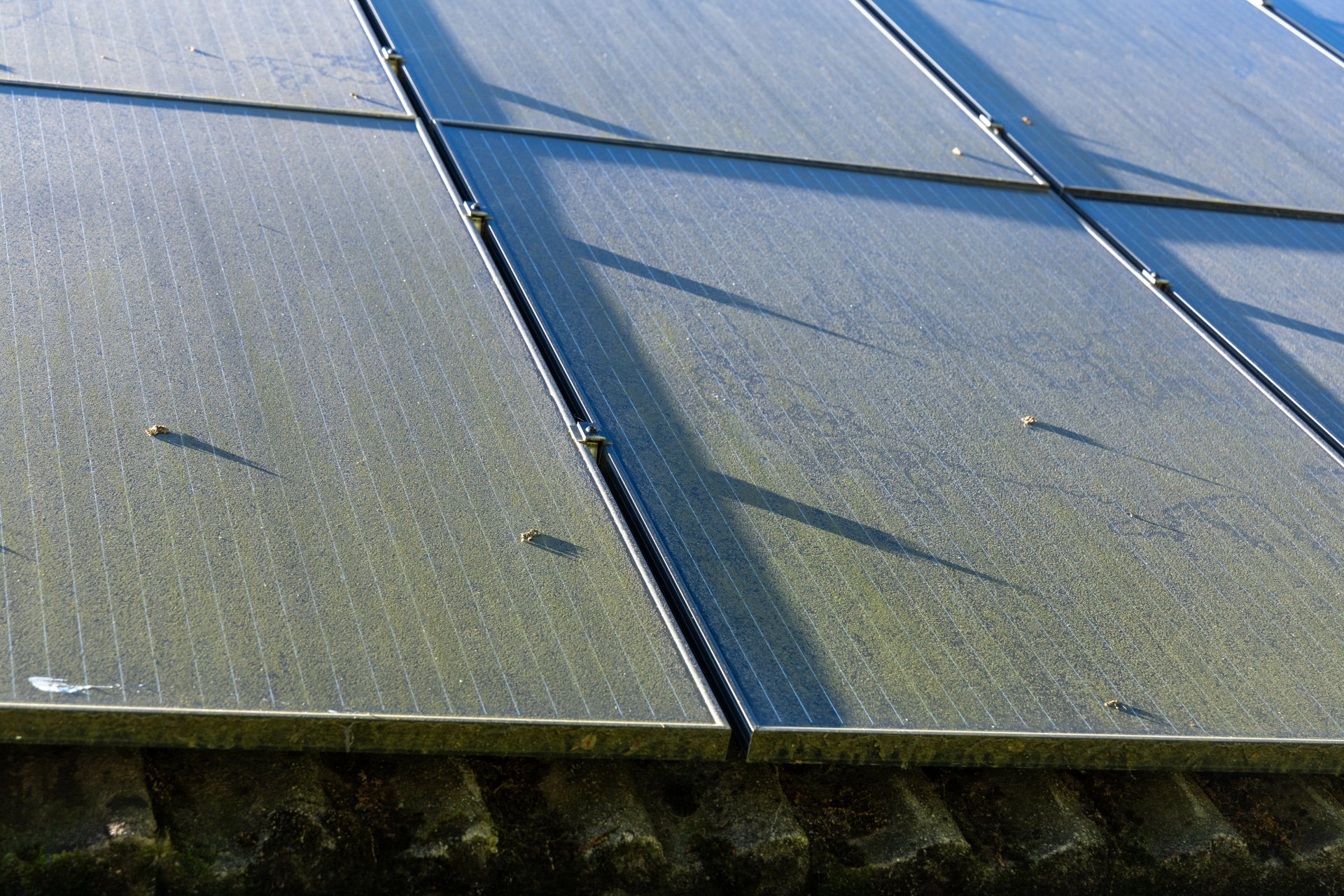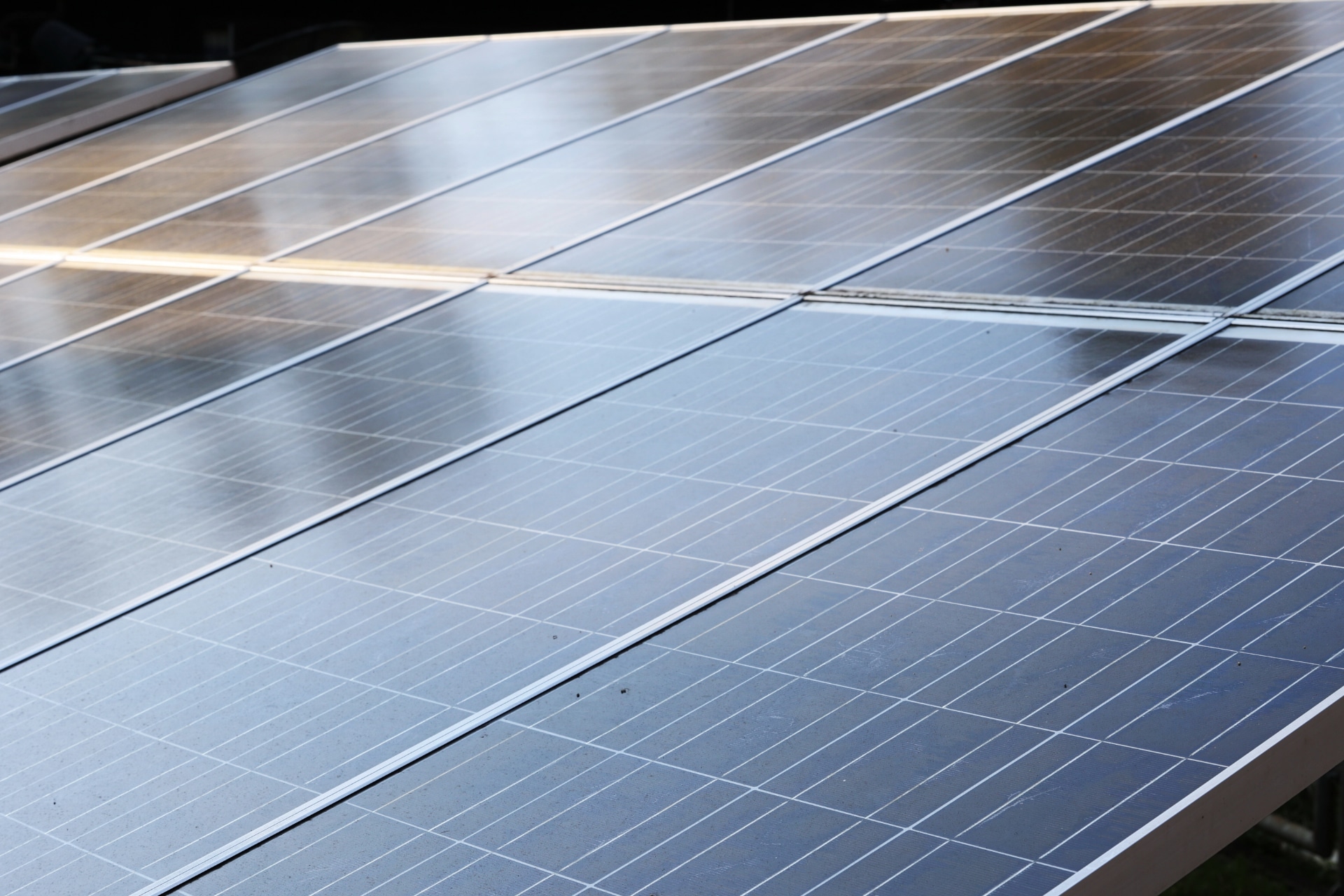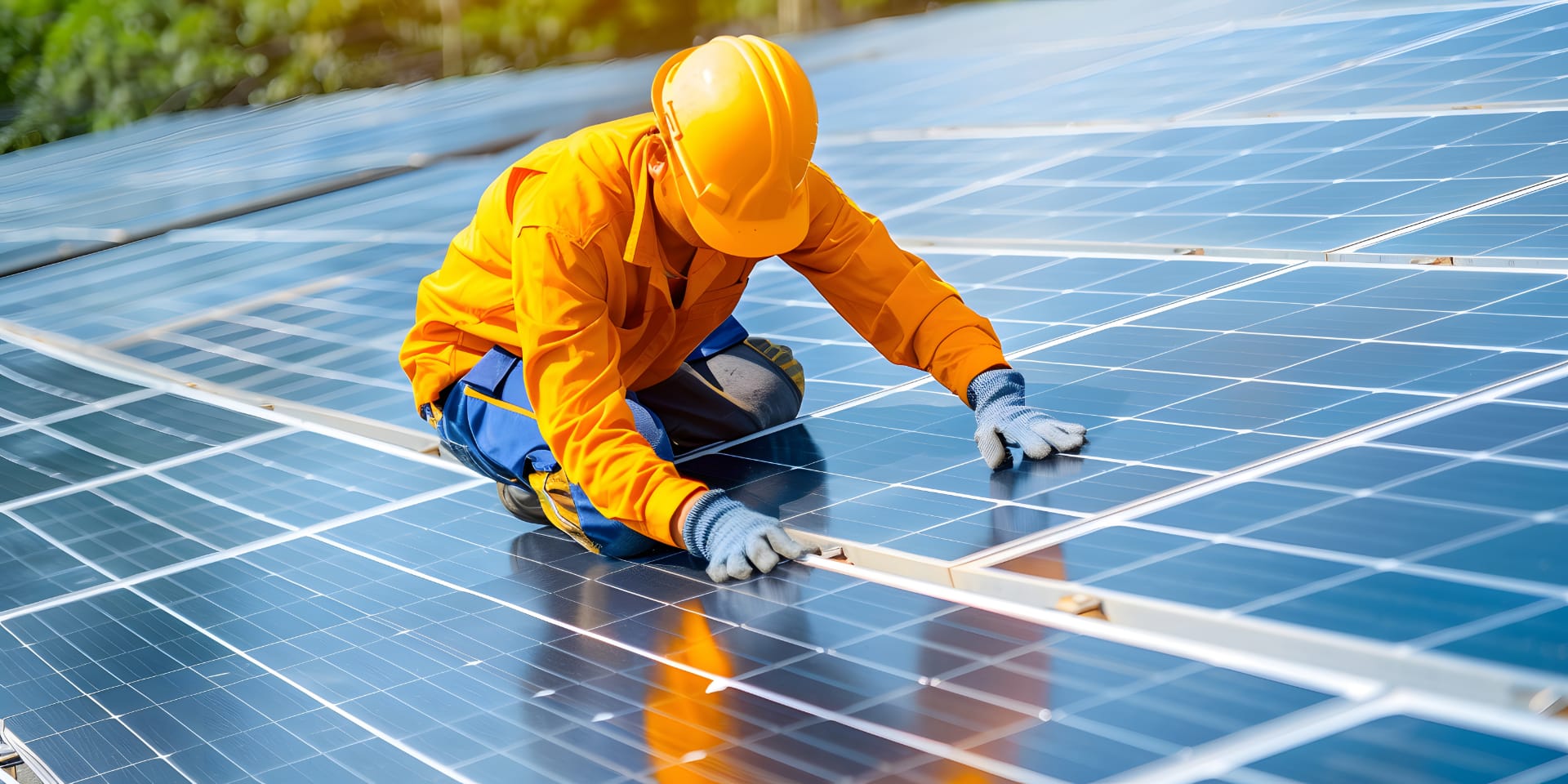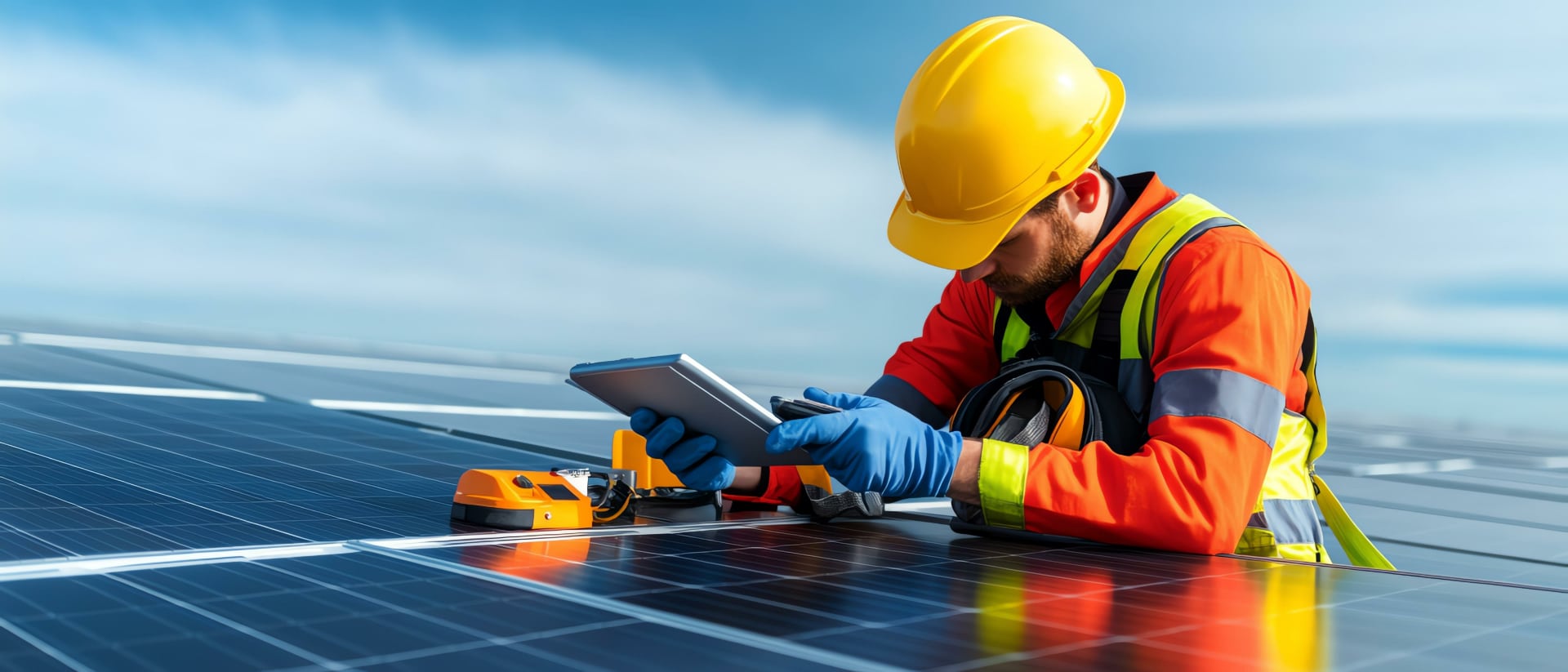As more people turn to solar power and solar panels, the need for upgrades to solar panels is rising. Many homeowners are seeing the advantages of upgrading current solar systems to boost effectiveness, accommodate greater energy requirements, and benefit from the most recent technology. This could be caused by wear and tear, increasing energy requirements, or just wanting to make the most of their solar system.
Reasons to Upgrade Your Solar Panels
As solar technology improves, many homeowners are interested in upgrading their solar systems not just to replace outdated parts but also to increase energy efficiency, meet ever-growing energy requirements, and use the most recent technology. As time passes, solar panels get worn out, which makes upgrades vital to maintaining the highest performance. Here, we examine the factors that can contribute to the increased appeal of solar panel upgrades to homeowners.
Improved Efficiency
Modern, high-efficiency solar panels produce more power using the same sunlight, which makes them perfect for maximizing energy output, especially in cases where roof space is a problem. Modern solar panels work better in dim light conditions, which results in greater energy efficiency and long-term cost savings through cutting down on dependence on grids.
Increased Energy Demand
The growing use of energy-intensive appliances and electric vehicles means many existing solar systems may struggle to meet demand. Upgrading ensures your system can handle higher energy needs, supports potential additions like battery storage, and offers an efficient solution for homes with limited roof space.
Technological Advancements
Today’s solar panels are more efficient, durable, and heat-resistant. Many upgraded systems come with advanced monitoring tools for real-time energy usage data, helping maximize efficiency. Upgrading inverters further enhances energy conversion, making your system more effective overall.
Wear and Tear or Damage
Solar panels naturally lose efficiency with age, and factors like weather and debris can cause damage. Replacing worn or damaged panels restores system performance, often bringing extended warranties and reduced maintenance. Upgrading ensures that your solar setup remains efficient, safe, and cost-effective for the long term.

Can Your Existing System Support an Upgrade?
When considering a solar panel upgrade, evaluating whether your current system can support the changes is important. A successful upgrade goes beyond adding new panels; it involves ensuring that your system components are compatible with and capable of handling the increased load. Here’s what to assess before proceeding with an upgrade.
Inverter Compatibility
The inverter is one of the most critical components of your solar system. It converts the direct current (DC) produced by the panels into alternating current (AC) used by your home.
- Check inverter capacity: Your current string inverter must be compatible with any additional or more efficient panels you install. Older inverters may not be able to handle the increased output, which could lead to system inefficiencies.
- Upgrade if necessary: If your inverter isn’t powerful enough to support the upgrade, consider replacing it with a higher-capacity model. A new inverter will ensure your system converts energy efficiently and runs smoothly.
- Improve system efficiency: Upgrading the inverter not only supports new panels but can also improve the overall energy efficiency of your system, allowing you to generate and use power more effectively.
Electrical System Capacity
Your home’s electrical system supports the additional energy upgraded solar panels produce.
- Assess your electrical panel: If you plan to increase your solar system size, your electrical panel and wiring must be able to handle the extra power. An older or undersized panel might not be sufficient for a larger solar system.
- Prevent overload: A system upgrade could increase energy production, so ensuring your home’s wiring can safely handle the new energy levels is important. This can help avoid potential overloads or safety risks.
- Plan for future needs: If you’re considering adding battery storage, ensure your electrical system can accommodate it. Planning can prevent the need for costly upgrades later.
Roof Space and Layout
The size and layout of your roof are crucial when upgrading solar panels. If you’re adding more panels to meet higher energy needs, roof space must be evaluated carefully.
- Evaluate available space: Ensure you have enough roof space to accommodate additional solar panels. If space is limited, upgrading to higher-efficiency panels might be better than adding more.
- Optimize roof layout: Your roof’s orientation and shading affect the efficiency of your solar panels. South-facing roofs with minimal shade are ideal, but consider the best layout for maximizing sun exposure if this isn’t possible.
- Check roof condition: Before adding more panels, inspect the condition of your roof. If repairs or upgrades are needed, addressing these before installing new panels is better to avoid future complications.
Reviewing your system’s inverter compatibility, electrical system capacity, and roof space can ensure a smooth and successful solar panel upgrade. Consulting with a solar professional through a solar inspection will provide the best guidance for your specific needs. For maintenance tips, explore our solar panel cleaning service.
Options for Upgrading Your Solar Panels
Upgrading your solar panels could increase energy efficiency, helping to meet the increasing energy demands. Whether you’re looking to replace your old panels or install new ones, there are a variety of options available, depending on your goals and your existing system.
Replacing Old Panels with High-Efficiency Models
One of the simplest methods to improve your system is to swap old panels with more efficient models. New solar panels transform sunlight into energy with higher efficiency, which means that you can get more power using fewer panels. This is particularly beneficial in cases where the roof space is restricted since newer panels can boost output without requiring more space.
With time, improved efficiency can result in substantial savings in energy costs by reducing dependence on the grid. If your panels aren’t performing well, think about making an appointment with a solar consultant to determine the desirable option for upgrading your specific needs.

Adding More Panels to the Existing System
If you live in a household with increasing energy demand, expanding your solar array is a great solution. Additional solar panel installation can boost the capacity of your solar system’s energy, which is especially advantageous if you’ve recently put in batteries or bought new appliances that consume energy. If the roof is large enough to accommodate space and panels, adding more panels will allow the homeowner to boost production without replacing existing appliances.
Make sure your inverter string can take on more load. If it cannot, upgrading the inverter might be necessary to warrant efficient system operation. This is a good feature if your existing panels are in good shape; however, extra power is required.
Switching to Different Panel Technology
Moving to a different kind of panel is an effective strategy to maximize the size of your solar system and increase efficiency. Today’s market offers the most advanced panel options, including bifacial or thin-film technology. These impart numerous benefits based on efficiency, cost, and installation requirements.
Selecting a panel that is suited to your needs and the layout of your home can boost your system’s overall performance and make it an attractive opportunity for those whose panels aren’t performing as well as they should.
Upgrading to Smart Solar Panels
If you’re looking for greater control over your solar output, smart solar panels provide an advanced solution. They are fitted with real-time monitoring capabilities, which allow you to monitor energy production and use it with an app or software.
Smart panels can adjust their energy consumption according to environmental conditions to maximize your system’s efficiency and savings. This is a great upgrade for homeowners who want to control their energy use with precision.
If you’re considering upgrading your solar panels, contact us for competent advice from a skilled professional to find the desirable solution for your home.
Cost Considerations of Upgrading
If you’re considering an upgrade of your solar panel, knowing the associated costs is crucial. When replacing the old panels, installing new ones, and even upgrading your inverter, you need to evaluate the costs against the advantages. Here’s a breakdown of major costs.
Cost of Replacing vs. Adding Panels
- Replacing old panels: If your current panels are inefficient and need to be replaced with modern and more efficient models, it could increase energy efficiency. This feature will generally cost more upfront but can result in longer-term savings because of better performance.
- Adding more panels: If your existing system is well-maintained but fails to provide the energy you require, adding more panels could be a cost-effective method to improve the size of your solar system without the need for a complete overhaul. This is particularly beneficial if you’re considering using battery storage to store extra energy.
Inverter and Wiring Costs
When you upgrade your solar system, it’s essential to ensure the inverter on your string can handle the extra power. If it isn’t, switching to a larger capacity inverter will help convert solar energy to electrical energy much more effectively. Furthermore, expanding your solar system could require wiring changes to manage the rise in energy flow, which improves the safety of your system as well as efficiency.
Return on Investment (ROI)
The upgrade of your solar system could offer an excellent return on investment. A more efficient panel and a well-designed system will mean lower energy bills and greater energy production. While the initial costs may be expensive, the savings over time will make it worth it. In addition, an upgrade to solar could raise the value of your house.
Financing and Solar Incentives
Many states offer financial incentives for solar panel upgrades, such as tax credits, rebates, and many other benefits. This can help lower the costs of upgrading. If upfront costs are an issue, financing options like solar leases or loans are readily available, allowing you to spread out payments over time while enjoying the advantages of upgrading your system.
Steps to Upgrade Your Solar Panels
Upgrading your solar panels involves several steps to ensure the process is smooth and effective.
- Evaluate Current Energy Usage and Needs: Review your current energy usage to determine if your system meets your needs. If you’re using more energy than your panels can produce, it’s time to consider an upgrade. This is also a good time to assess your future needs, such as plans to install battery storage or other energy-efficient appliances.
- Consult a Solar Professional: Before making any decisions, it’s important to have a solar consultation with a professional. They can assess your system and recommend the best upgrade options for your home.
- System Design and Upgrade Plan: Once you’ve consulted a professional, they will help design a system that meets your energy needs. This plan will include whether to replace panels, add more, or upgrade other components like the inverter or wiring.
- Installation Process: During the installation, professionals will replace or add the necessary components. This process can vary depending on the complexity of the upgrade, but it’s typically straightforward if you’re adding panels or upgrading inverters.
- Testing and Monitoring the Upgraded System: After installation, the system should be tested to ensure everything works properly. Modern systems, especially those with smart solar panels, can be monitored in real-time to track energy production and identify any issues.
For ongoing maintenance, check out our solar panel maintenance service to keep your upgraded system running smoothly.

Permits and Regulations for Upgrading
If you are contemplating upgrading your solar panel, it is important to know the regulations and permits involved. Upgrading your solar system could require approval from the government or collaboration with the utility company and may affect the incentives or feed-in tariffs you’re currently receiving. Here’s what you should be aware of.
Do You Need New Permits?
You might need to get new permits to upgrade your solar panel, particularly when replacing older panels with the latest models or increasing your system by adding additional panels. These permits are required to ensure the upgraded system complies with local safety standards and building regulations. Talking to a skillful installer will make the process simpler. They will guide you through the process of obtaining permits and also inform you when your specific solar panel upgrade needs more approvals.
Utility Company Requirements
- Notify your utility provider: Your utility company needs to be aware of any changes to your solar system. Whether upgrading to a larger solar system or switching to different panels, the utility may require approval to ensure your upgraded system can safely connect to the grid.
- Grid connection updates: After an upgrade, some utility companies might need to inspect or update their connection to your system. Complying with their requirements is important to avoid interruptions in service or issues with energy credits.
Impact on Incentives and Feed-in Tariffs
A solar panel upgrade can influence the incentives or rebates you currently receive. In some cases, improving your system’s efficiency or expanding it may qualify you for new incentives, so checking with local programs is worthwhile. Additionally, upgrading your panels could affect your feed-in tariff credits if your system feeds excess energy back into the grid. Confirming with your utility provider can help you understand any changes to compensation under these programs following a solar panel upgrade.
If you’re wondering, “Can I upgrade my solar panels without affecting my existing incentives?”, the answer often depends on local regulations and utility agreements. A consultation can help clarify how your upgrade will impact these factors.
Benefits of Upgrading Solar Panels
Upgrading your solar panels offers key advantages, from boosting energy efficiency to increasing your home’s value. As solar technology improves, upgrading enhances your system’s performance and energy savings.
- Improved Energy Production and Lower Bills: Newer solar panels are more efficient, generating more electricity from the same sunlight. This reduces your reliance on the grid, lowering monthly energy bills. Over time, the savings from a solar panel upgrade can offset the initial investment.
- Better Resale Value for Your Home: An upgraded solar system can increase your home’s resale value. Buyers are attracted to homes with efficient solar panels as they promise lower energy costs and sustainable energy. This makes your home more appealing in the market.
- Lower Maintenance and Longer Warranties: Upgraded solar panels are more durable and require less maintenance. Additionally, newer models often come with longer warranties, providing peace of mind and ensuring your system operates smoothly for years with minimal upkeep.
In summary, upgrading your solar panels can improve energy production, reduce bills, increase home value, and lower maintenance costs, making it a smart investment.
Upgrading your solar panels is a smart move for homeowners looking to improve energy efficiency, reduce electricity bills, and boost their home’s value. Whether you’re asking, “Can I upgrade my solar panels?”, or considering replacing old panels with high-efficiency models, the benefits are clear. From better energy production to lower maintenance and longer warranties, a solar panel upgrade offers long-term savings and peace of mind. Investing in the latest solar technology ensures your home stays energy-efficient and ready for the future.

